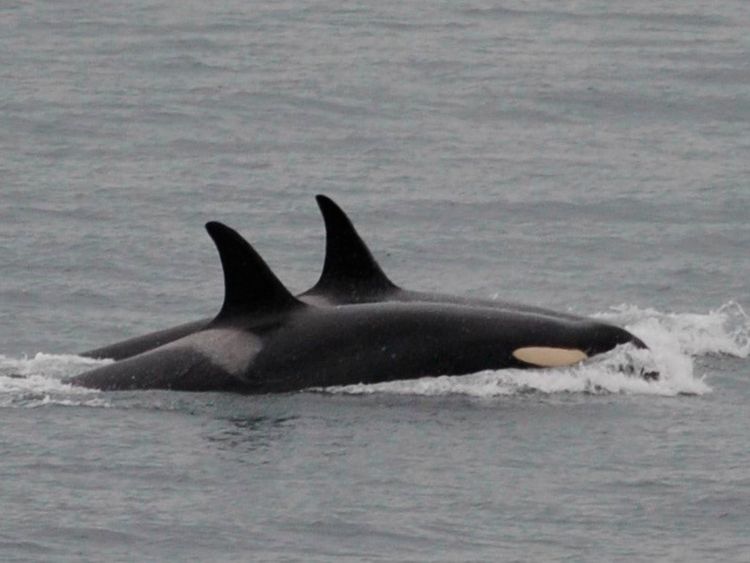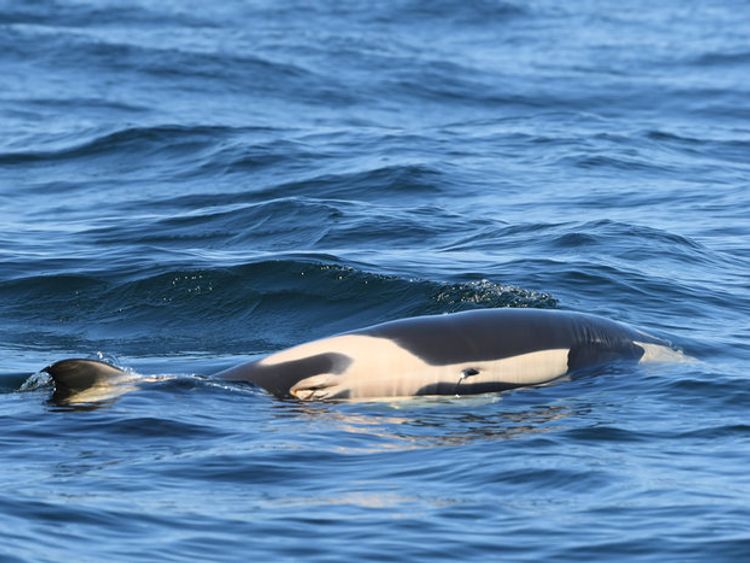Researchers said the endangered killer whale - known as J35 and affectionately named Tahlequah - was back to feeding and frolicking with her pod after she was seen chasing a school of salmon in Haro Strait, west of the San Juan Islands in Washington State on Saturday.
Pictures of the mother carrying the infant, who was born on 24 July, drew attention around the globe as experts determined the female orca was going through a "deep grieving process".
Researchers said the whales, who are known for mourning their dead, had been helping the mother to carry the calf.
Witnesses even described the group, which had been struggling due to a lack of salmon, gathering in a cove for what looked like a "ritual or ceremony" after the baby died.

Despite curfew, deaths mount in Bangladesh student protests ove...

Image:J35, in the foreground, swimming without her calf. Pic: Center for Whale Research
However, Center for Whale Research founder Ken Balcomb said he was relieved to see J35 displaying typical behaviour once again after abandoning her calf's decomposing carcass.
"The ordeal of J35 carrying her dead calf for at least 17 days and 1,000 miles is now over, thank goodness," he said.
Experts had been concerned about the mother's condition and worried that the time and energy spent clinging onto the infant's body could take away from time spent foraging or feeding.

Image:The calf died shortly after it was born. Pic: Dave Ellifrit, Center for Whale Research
Writing on its website, the Center for Whale Research said Tahlequah's "tour of grief" was now over and that her behaviour was now "remarkably frisky".
It also said photos taken of the whale showed she was in a "good physical condition".
"There had been reports from brief sightings by whale-watchers two days ago that J35 (Tahlequah) was not pushing the calf carcass in Georgia Strait near Vancouver," it said. "And now we can confirm that she definitely has abandoned it.
"The carcass has probably sunk to the bottom of these inland marine waters of the Salish Sea, and researchers may not get a chance to examine it for necropsy."
The orcas of Washington State's inland waters are down to just 75 animals and there has not been a successful birth since 2015.
The lack of Chinook salmon, threats from toxic contamination and disturbance from vessels in the water - which disrupts the whales' ability to communicate and forage - have all threatened the animals' ability to thrive in recent times.



































